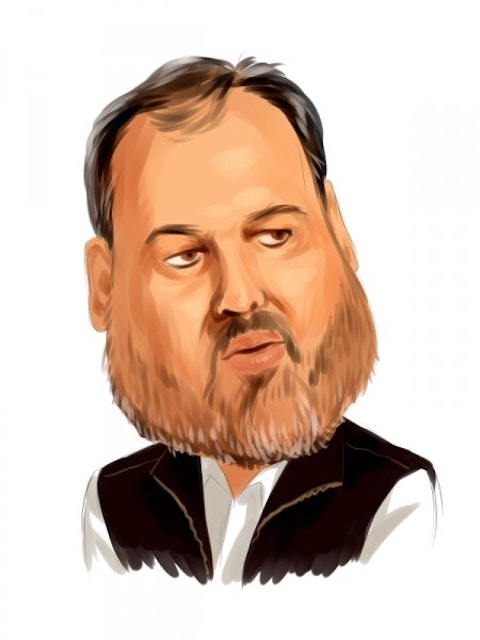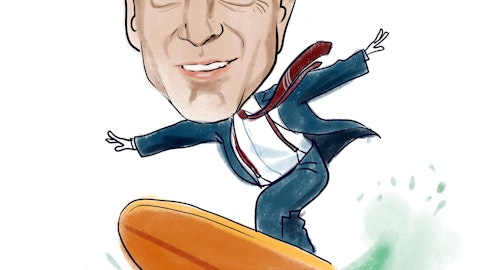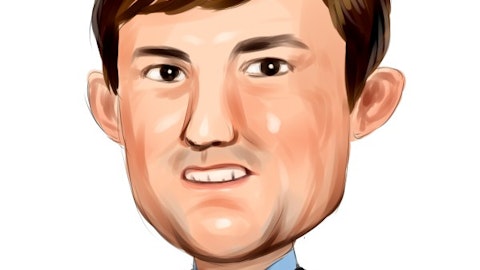Passport Capital’s investor letter for Q4 2014 is out. You can read the highlights of this investor letter by signing in or creating a free account below. “We think this is the best macro investing environment we have seen in quite some time, and we are more excited about our prospects than we have been in several years,” John Burbank said in this investor letter. Burbank’s long/short equity hedge fund returned 0.9% for 2014 vs. 13.5% gain for SPY. Passport Capital, which is $4 billion in assets under management, returned 17.5% since its inception but the good returns were in the early years of the hedge fund. The fund outperformed the S&P 500 Index by 12.9 percentage points per year since its inception in 2010. However, it underperformed the S&P 500 Index by an average of 9 percentage points over the last 3 years. In stark contrast, Insider Monkey’s small-cap hedge fund strategy outperformed the S&P 500 Index by an average of 18 percentage points per year between 1999 and 2009 (though this result is based on back tests). We launched a quarterly newsletter and started sharing the stock picks of our small-cap hedge fund strategy in real-time. The strategy returned an annualized 40% since its inception 2.5 years ago. S&P 500 ETF (SPY) returned only 20% during the same period. Another good thing about our strategy is that you don’t have to give up an arm and a leg for our absolutely market crushing returns. Since you already created a free account on our site, you can download sample issues of our newsletters on this page.

Let’s get back to Passport Capital’s latest views about the markets. Burbank is extremely excited about 2015. “The difference between QE-enabled markets in Europe and Japan and the prospects of tightening in the U.S. is leading investors to different prices and conclusions. We believe that the opportunity to profit from longs and shorts in equities, currencies, rates and commodities is quite compelling,” Burbank said.
Here is a summary of his views taken from the investor letter:
Rising U.S. Dollar: A stronger dollar is a tailwind for U.S. assets. Yields in Treasuries, despite a considerable decline, are still well above bond yields in Europe or Japan. We think they will continue to fall, despite nearrecord short interest in the 10-year from investors expecting an improving economy. We are presently short the Yen and the Euro but recognize they will behave differently in different environments, as the yen tends to rally on risk-off moves while the Euro is on a downward trajectory set in motion by the ECB. We believe other commodity currencies will continue to weaken, and as a result leave most commodity equity shorts unhedged on a currency basis.
Declining Rates: As 2015 has begun, many seasoned fixed income investors expect yields of 10-year and longer Treasuries to fall. But we are of the view that U.S. rates will be lower across the curve. We believe the Fed will find it difficult to raise rates as many times as expected; as such, we are long the 1-year rate two years’ forward (2y1y) with the view that, while there will likely be one or two rate hikes, it will be fewer than investors presume (and prices reflect), as the impact from a stronger dollar could alter the number of hikes that the Fed will likely execute.
Falling Commodities: While we have been short industrial commodities since late 2011, we were caught offside by the decline in crude oil in the second half of 2014—last year’s black swan event. By Q4, however, it had become apparent that OPEC would maintain output, as Saudi sought to punish Russia and Iran for their support of Syria and reduce the threat from North American shale oil production. Just before the OPEC meeting in November, we shorted crude in part to express this view and in part to hedge our long Saudi equity position; we maintained this position into year-end. It is remarkable how energy equities held up so much longer than the price of crude; in our view, the equities were pricing in a V-shaped recovery for the oil price. We maintain our Saudi long exposure based on the views that 1) Saudi has the reserves to fully fund its budget for many years without relying on a dollar of incremental oil revenues, 2) the Saudi stock market will open to foreign direct investment likely sometime in the middle of this year and 3) despite four years of strong performance, Saudi equities are very attractive by virtue of intrinsic, strong growth rates and inefficient prices driven by a market that is largely dominated by domestic, retail investors.
Developed Markets (U.S.) over Emerging Markets: For the bulk of our equity exposure, there is a preference for large cap, U.S. dollar-denominated companies, particularly companies with high potential for buybacks or otherwise returning capital to shareholders. We have a preference for companies with strong cash flow generation, strong corporate governance and growth. Our shorts, however, are generally very dependent on global GDP growth or hurt by a strengthening dollar. We are also short certain companies that are commodity price-dependent or highly levered, a factor that we think now suffers in an environment of tightening financial conditions.
The rest of Passport Capital’s investor letter is shared with our premium subscribers who are in our premium hedge fund investor letters group. Our newsletters are truly exceptional and our stock picks performed much better than any of the large hedge fund managers’ stock picks including Ackman, Einhorn, Rosenstein, Cooperman, and George Soros over the last 2.5 years. Check out the details here.





